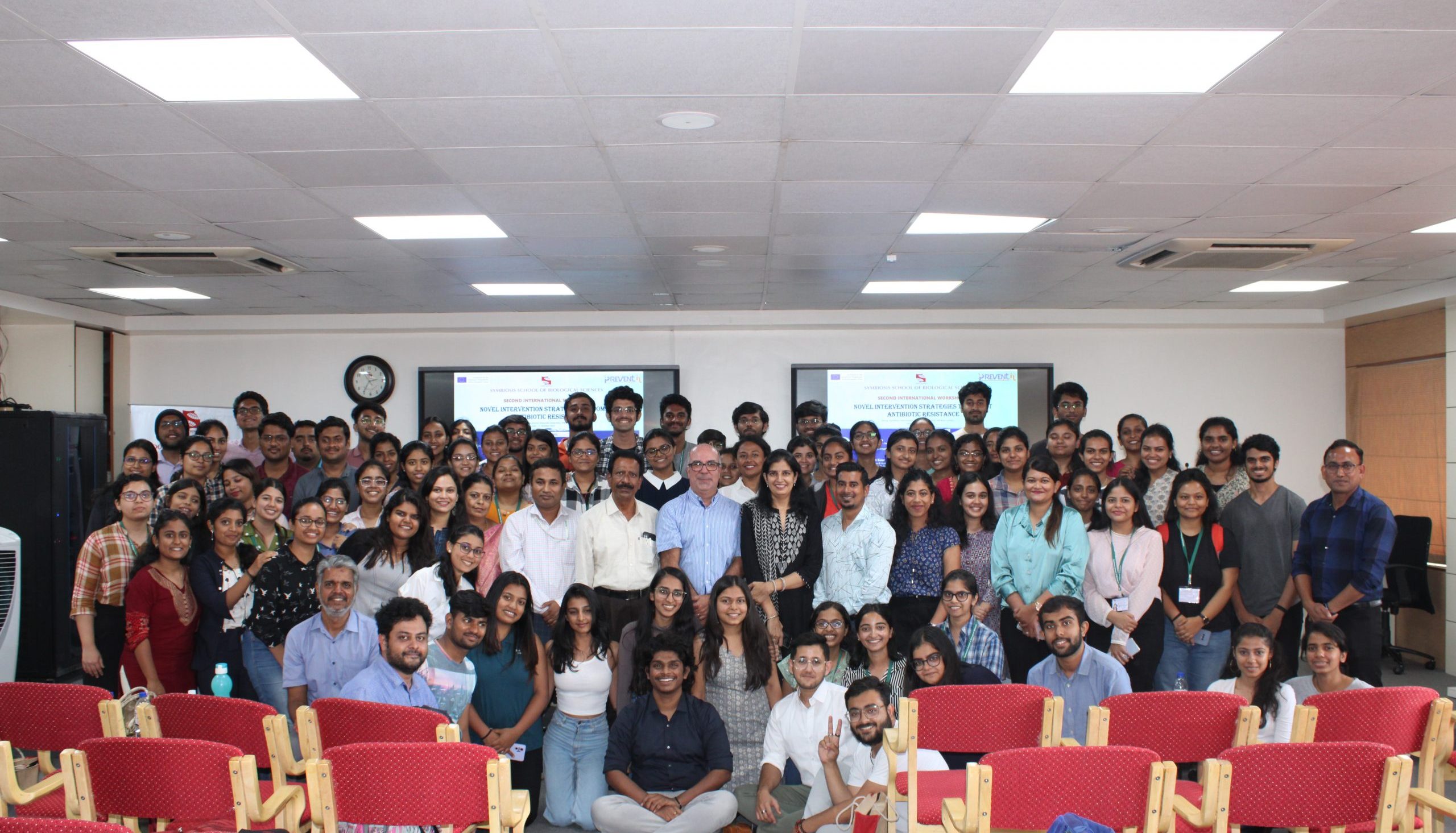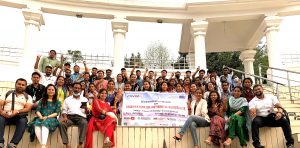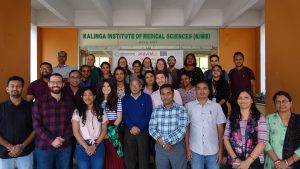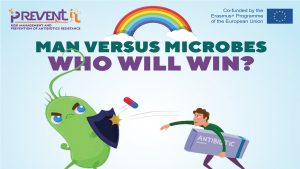Antimicrobial resistance (AMR) is one of the most serious global health threats, with the number of deaths attributable to AMR expected to reach 10 million per year by 2050 unless action is taken. In 2015, the World Health Organization published a global action plan on AMR, urging member states to develop their own plans to combat AMR in their respective countries or regions. Hence it is very important to improve awareness and understanding of antimicrobial resistance. To ensure proper antibiotic use, a massive global public awareness campaign is required. As part of the Erasmus+ funded project PREVENT IT, an international workshop on “New Intervention Strategies to Combat Antibiotic Resistance”was held. Symbiosis School of Biological Sciences, Symbiosis International Deemed University, organised the event. The event
was scheduled for Saturday, October 1, 2022, from 9:00 a.m. to 3:00 p.m. at Seminar Hall, SSBS, Pune.
Experts speakers from India and abroad from institutions such as Portuguese Catholic University, Lisbon, Chitkara University of Health Sciences, Chandigarh, The KIIT School of Public Health, Odisha, Manipal Academy of Higher Education (MAHE), and RIPE, Tirupati attended the workshop. The main goal of the workshop was to raise awareness about the problem of antibiotic resistance and to devise new strategies to combat it. The event drew about 100 people, including students from undergraduate, postgraduate and research scholars from department of Biotechnology and Biochemistry. The session began with the opening remarks delivered by Dr. Sunil Saroj followed by felicitation of the guests by Ms. Riya Joshi. Dr. Kiranjeet Kaur (Chitkara University, Punjab, India) delivered the first session on the basics of antibiotics,
their emergence and evolution, antibiotic use in humans, animals, and plants, resistance mechanisms, and spread. Dr. Kanishka Hrishi Das (Chitkara University, Punjab, India), also spoke about the impact of antibiotic resistance. Dr. Pratap Kumar Jena (KIIT, Bhubaneshwar, India) spoke briefly about the overall goals of ONE HEALTH and recent antimicrobial legislation. Followed by this, Dr. Rahul Clare (Manipal University, Manipal, India) then discussed the
Environmental AMR Goal by explaining the ground truth realities.
Further, Dr. Carlos Palos (Catholica University, Lisbon, Portugal) then lectured on Infection Prevention and Control: Core Components and Multimodal Strategies to the students. Dr. Prakash Narayanan (MAHE, Manipal) discussed in brief about AMR prevention strategies. Mr. Muni Mohan, the representative from the Non-Governmental Organization (NGO), RIPE, Tirupati, shared his thoughts on how they are contributing to the cause by raising public awareness. The students’ feedback was collected, and it appeared that such workshops are very useful and a great way to empower the students and faculty about the situation.
To access the agenda of the activity, please click here!







